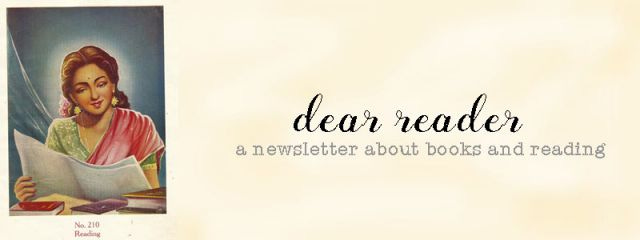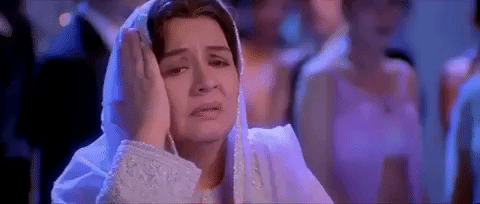Peace Has Come + We That Are Young + Other stuff

It’s been a fortnight of article reading more than book reading and here are the ones that stood out. The ever-delightful Geoff Dyer wrote about memory here. I love how Dyer is witty, insightful and never makes the mistake of showing off how much he knows and has read. “Nothing But” is about the unreliability memory and the memoir. “A slight discrepancy is often the sign of truth,” Dyer writes, as he wanders his way around literary non-fiction and ends up as “star witness” in a “car-bike antagonism” case. The point Dyer is making is that depending upon what your aim is as a chronicler, you might need a little fiction to make the fact feel factual. Also that our memory often isn’t quite as accurate as we think it is and that if it is on point, then frequently it doesn’t matter. The article is illustrated with some gorgeous photographic works by Augusta Wood. Wood’s series “Whether it Happened or Not” is made up of layered images (contemporary and archival) that look beautiful and spooky. Come for Dyer, stay for Wood.

“Rosy and Posy, Inked Feet, Misères Humaines (1974, 2012, 2013)”, by Augusta Wood.
I didn’t think I’d ever be curious about Charles Dickens and his beard, but thanks to this review, I am now consumed with the need to read Victorians Undone. Author Kathryn Hughes describes it as “an experiment to see what new stories emerge when you use biography — which, after all, is embodied history — to put mouths, bellies and beards back into the nineteenth century.” Basically, it’s pop history and that too about an era that’s been written of a lot, but this book sounds fun.
From the past to the the future, which, according to author and futurist (it’s a real word and profession. “A person who studies the future and makes predictions about it based on current trends”), will involve no reading at all.
“Google now has a way to convene that kind of forum—in half a second. Speaking to TED curator Chris Anderson yesterday (April 13), legendary futurist Ray Kurzweil introduced “Talk to Books” a new way to find answers on the internet that should bring pleasure to researchers, bookworms and anyone seeking to expand their thinking on a range of topics.
Type a question into “Talk to Books,” and AI-powered tool will scan every sentence in 100,000 volumes in Google Books and generate a list of likely responses with the pertinent passage bolded.”
Kurzweil described it as “good for exploring ideas”, which suggests his notion of “exploring” and mine are radically different. Perhaps it’s old-fashioned of me, but this kind of fragmentation of books strikes me as dangerous, especially when you apply it to fiction. Traditionally, books have tried to build an argument with slow, measured subtlety. An author has characters say things in order to build that character, not because they’re nuggets of self-help wisdom. Even with non-fiction, it seems so damn myopic to take just a paragraph out of a book and miss all the other things that the author has woven into their writing. The argument is that these fragments would be teasers and perhaps that does work, but I’m far from convinced. The whole Talk to Books idea seems to encourage a kind of narrow-focus, blinkered worldview and books, for me, are the opposite of that. To select passages like this feels vaguely like waving a freshly-amputated body part when someone asks after a person. Yes, this is my version of horror.
Roxane Gay has edited a series of essays titled Unruly Bodies (available on Medium). It’s such a beautiful term and captures perfectly how the body does things you just cannot control. There will be 24 parts and they’re all non-fiction. Along with the writing, there’s some striking art as illustration. I sent Unruly Bodies to someone who wrote back saying, “Interesting but obviously for women.” This someone is male and this was their explanation for not spending time with this series. I was fascinated by the reaction. So far, most of the writers are women and yes, women are taught to invest more in their appearance and feel more ashamed of unruly bodies. If the average male reader is completely comfortable in his skin and doesn’t ever feel even a flash of discontent, then surely you’d want to read this just out of curiosity. Also, if you really think you’re entirely at peace with how your body behaves, you’re in denial so maybe you should read this series to see how you’re deluding yourself.
Jerry Pinto wrote about reading and writing in today’s social media-driven, phone-clutching age. He’s full of despair as he talks about mushrooming literary festivals and the withering interest of readers in reading.
“What is more troubling is that no one seems to be reading. After all these years of hosting a huge literary festival, there is not a single bookshop worth the name in Jaipur. I watch the people at the festival bookshop: they seem oddly uncertain of how to deal with the choices. Their hands wander over the books, they pick them up and turn them over and around. They rarely do what people who go to bookshops do: they rarely open the book they are holding and begin to read.”
I get his frustration and there’s a part of me that’s saying “HELL YEAH”. But then there’s the other part of me that’s reviewed books for a solid decade or so, and boss, the kind of crap I’ve read is astounding. Perhaps some of the blame for the shrinking interest in reading has to be borne by our writers and our publishers. I don’t know figures for how much books sell and how many people read, but I do know that it’s hard for those who want to read to find the right gateway. You need to find the book that makes you eager to read more, and when you get that feeling, you need to find another book. Preferably another book that makes you as hungry as the first one did. Bottom line: books are like drugs. Which means a lot of its popularity lies in how the supplier plays the game.
Also, since I’ve been getting wonderful responses to Hush A Bye Baby via social media from readers I don’t know from Adam, I’m currently feeling very generously disposed towards social media, the internet and readers.
Speaking of books, I’ve got two for you. One to avoid and one that’s worth a read. Let’s get the one that didn’t wow me out of the way first.
I’m late to Preti Taneja’s We That Are Young, which has been praised by many. The idea of adapting Shakespeare’s King Lear to Delhi and Gurgaon is great and ambitious. However, it’s so sprawling and slack in terms of pacing that I struggled to stay with it. For more than 100 pages, we're accompanying a character who is peripheral. Even when the key players, it takes forever for things to happen. I wonder if there’s a rule somewhere that says “Long = Literary” because I have a feeling if the novel had been about half its length, it would have been significantly more engaging.
That said, someone I know recommended it to me highly and described it as a “page-turner” except I found myself happy to not turn most of its pages. Taneja lavishes a lot of attention to being clever with language and this works well in parts. Unfortunately, too often, it feels laboured, particularly when she embroiders the English with scraps of Hindi to feel more natural ("native"?). I wouldn't say Taneja is clichéd but there's a certain kind of exotica she's crafting with the over-the-top opulence that characterises the world in which the novel is set. And then there are bits like the scene in which two characters have sex using a laddoo for foreplay.



After being thoroughly disappointed by the graphic novels, I’m happy to report that Contxt’s prose fiction is much better. I just finished Parismita Singh’s Peace Has Come, a volume of short stories set in parts of Assam that were once riddled with militancy and are now officially in a state of ceasefire. Full disclosure: Parismita and I were in college together and we’ve sorta kinda stayed in touch, but nowhere near enough for me to lie through my teeth and tell you hers is a good book if it isn’t.
Peace Has Come has eight stories in it and they’re all about the traces of violence linger in a society. For those who don’t feel ready to commit to the bigness of a novel, short stories are a good start. The ones in this volume don't really have a sense of urgency and the best ones are in the latter half, but all of them have a quietness that makes you acutely aware of how the calm is purely superficial. This everyday acceptance of terror is a flimsy cover that camouflages fears, anxieties and depression as normalcy.
I have to admit, I was a little worried that there would be scattered lectures that seek to educate the reader, but thankfully, Peace Has Come believes in show rather than preach. It is a fact that most of us are not as aware or knowledgeable as we should be about the North East, but when the information enters fiction with the subtlety of a sledgehammer, it doesn't achieve any purpose. Singh has woven a fair share of history into the landscape of her stories, but she doesn’t get stuck in dates and details. Instead, she focuses on the events and characters that she's writing about. At its best, Peace Has Come is a solid exploration of what is considered humane and how simple actions become suspicious and threatening when you’re surrounded by violence. There are occasional spurts of unnecessary lyricism, which isn't Singh's forte. I preferred her writing when it wasn’t trying so hard. Some of her characters feel two-dimensional, but Singh’s settings are pitch perfect — the tea stalls, the crowded vehicles, the rooms, they come to life as you read. Peace Has Come is particularly good at emphasising how these areas are made up of the warp and weft of many indigenous cultures (Santhal, Bodo, Nepali, Rabha, Muslim, Koch-Rajbongshi). Side attraction: the book also looks beautiful because some pages have delicate illustrations fanning across them.
So yeah, a good read.
APRIL TITLES FROM BLOOMSBURY
You Can Achieve More
Shiv Khera
Non-Fiction, Rs 399
“A person with a negative attitude cannot be helped and a person with a positive attitude cannot be stopped,” says the blurb, which provides no details on how someone prone to churning out trite aphorisms may be stopped. From personal experience, a negative attitude has worked fine for me, thank you very much. Mr. Khera and I will just have to agree to disagree.
The Bitter Pill Social Club
Rohan Dahiya
Fiction, Rs 399
Promising to appeal to all readers (“from trashy to high literary”), this book is about the Kochhar family, which is wrapped in cigarette smoke and “drifting apart in the city of gins and fake friends” (by which the author means Delhi). Leaving aside unfortunate and (one assumes) unwitting associations to Our Lady of ICICI, this sounds a little bit like We That Are Young, so I’m not sure I’m ready for this right now. On the plus side, it doesn’t seem to carry a Shakespearean weight upon its soul.
Entresutra
Soumodip Sarkar
Non-fiction, Rs 499
Sounds like a new-age medical procedure, but is about the six pillars that determine entrepreneurial success. What are they? Read to find out. All I know is that “while each of these pillars constitutes a story in its own right, taken together, a fabric is woven that permits the reader to appreciate the entrepreneurial journey, drawing lessons for one’s own endeavours as Aha! moments are encountered along the way.” Cue in: Take on Me.
The Shrine of Death
Divya Kumar
Fiction, Rs 299
Two priceless Chola bronzes disappear and next thing you know, we have a beautiful young historian who is ready to unleash her inner sleuth upon Tamil Nadu. About time we got some archaeology-meets-crime action going in Indian literature.
The ISIS Caliphate
Stanly Johny
Non-fiction, Rs 499
Leaving aside his somewhat typo-esque name, Johny is the international affairs editor at The Hindu. Based on primary sources and interviews, the book explores the geopolitical, organisational and ideological roots of ISIS and narrates how the group has spread its wings from its core in Iraq and Syria to the peripheries of India and Pakistan.
Circe
Madeline Miller
Fiction, Rs 499
She’s one of the many fascinating side characters from the Greek myths — daughter of the Sun, exiled to a magical island and the woman with whom many lost heroes are briefly entwined. This promises to be pretty darn amazing.
The Forensic Records Sociey
Magnus Mills
Fiction, Rs 399
Two men create a “society” for the appreciation of records and before you know it, we have (to quote the Guardian), “Animal Farm but with blokes for pigs, and much better songs.” Sold.
Shadowless
Hasan Ali Toptas
Fiction, Rs 599
I’m usually suspicious about any novel that’s described as “Kafkaesque”, but this one sounds beautiful and weird. Written 20 years ago, the book is set in a remote Anatolian village where a woman goes missing. Meanwhile, in another village, a barber snips away. All the while, the lines dividing dream from real begin to blur. The book has been translated by Maureen Freely (known for translating Orhan Pamuk) and John Angliss.
*
Dear Reader will be back in a couple of weeks. Thank you for reading.


